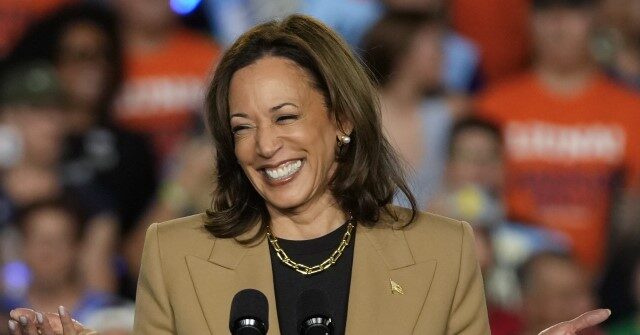On a recent CNN town hall, political commentator and former Obama adviser Van Jones offered a critical assessment of Vice President Kamala Harris’s performance. He highlighted that while Harris displayed glimpses of her true dedication as a public servant, she often dodged questions and delivered what he termed “word salad,” causing frustration for viewers trying to grasp her positions clearly. Jones acknowledged that there were moments where Harris connected with the audience, emphasizing her earnest desire to solve problems for ordinary people. However, he pointed out that her tendency to bypass the human element in favor of policy solutions sometimes obscures her intentions.
Jones specifically noted that when Harris discussed trying to help people secure housing or access healthcare for their sick family members, he sensed her genuine commitment. He conveyed that he believes she is indeed working towards improving the lives of Americans, even if he might not always agree with her proposed solutions. The essence of his critique rests on the importance of clear and straightforward communication in the political arena, particularly in a setting intended to engage directly with constituents. Jones implored that, while Harris may have passed the fundamental test of caring for day-to-day struggles of people, more clarity in her responses could vastly enhance her appeal.
Furthermore, Jones highlighted the discrepancy in treatment between Harris and her Republican counterpart, former President Donald Trump. He argued that while Harris has a structured policy framework aimed at addressing various issues, her execution in presenting these policies may lack coherence. Conversely, Trump’s approach is often devoid of substantive policy discussions, yet he commands attention and support from certain demographic groups. This contrast illustrates a broader concern regarding the expectations placed on female politicians, particularly women of color, who often face harsher scrutiny compared to their male counterparts.
In navigating her role as a vice president and a leading candidate for the 2024 presidential election, Harris finds herself at a complex intersection of identity politics and public expectations. The need for her to articulate her policies with clarity is ever more pressing, especially in an environment where voters desire transparency and decisive action from their leaders. The stakes are high, and her ability to resonate with ordinary Americans while demonstrating her policy knowledge will be critical in her campaign’s success. Jones’s insights echo a growing consensus in political commentary advocating for more impactful and relatable communication from political figures.
As we approach the 2024 election, the relationship between voter perception and candidate messaging will likely define the political landscape. Whether a candidate can connect authentically with the electorate while presenting coherent policies could be pivotal. The personal stories and struggles that resonate with voters often translate into electoral support, so striking the right balance in communication style is essential. Harris’s journey as a public servant is intertwined with her ability to navigate these expectations effectively and invite voters into her vision for the future.
In conclusion, the conversation about Kamala Harris and her communication style reflects broader themes within contemporary political discourse. Van Jones’s comments underscore the dual challenges faced by women in leadership roles while illustrating the need for transparency in political messaging. As the Democratic primary approaches, Harris must harness her passion for problem-solving and translate that into clear, accessible communications that resonate with voters on a personal level—balancing empathy with policy understanding to ultimately define her candidacy in a highly competitive electoral climate.

